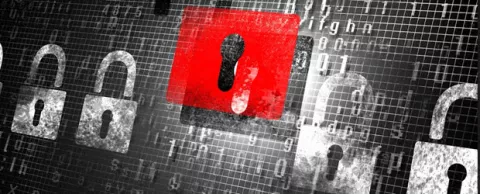
It may be startling news, but a lot of people are nervous about the connected world. Excited, but nervous. Sure, they'll appreciate improved and expanded city services and the benefits connectivity can bring whether it's fewer traffic jams, cleaner air, better streetlights, fewer power outages -- and all the other things a truly smart city can offer. They are, however, concerned about intrusions into their privacy and who does what with their personal information, as the story below explains.
There are a variety of ways to connect with citizens, whether it's web portals, outreach programs or something else. The Smart Cities Readiness Guide also offers examples of how cities can connect with their residents. If your citizens understand what your city is doing and why they're likely to be much more receptive to the new technologies essential for making cities smart and sustainable. Bottom line: Be transparent. Answer questions.
If you're still not quite sure how to connect with them, consider talking to your electric utility. Many utilities have vastly upgraded their customer service and use outreach programs to stay in touch with customers -- and keep tabs on what they want. -- Doug Peeples
Intel Security, a subsidiary of Council Associate Partner Intel, sponsored a global surveyed 9,000 people in nine countries on a variety of topics related to smart home devices. Almost all of them -- 92% -- were worried that their personal information could be hacked by cybercriminals. And it's not a stretch to assume those participants would feel the same about the connected technologies used by smart cities to provide new and expanded services for their citizens.
While some of the people surveyed would be willing to share their data if they were paid for it, they're still concerned. "Smart homes and their associated data have the potential to improve customers' everyday lives," said Steve Grobman, chief technology officer for Intel Security. "The survey shows that many individuals would be comfortable sharing their data for a price, but they are still understandably concerned about cyberthreats. Security has to be foundational to the Internet of Things and when done right, it can be an enabler to IoT."
Being connected isn't all bad, consumers say
To be fair, a new report based on the survey, Internet of Things and the Smart Home, offers some interesting and mixed findings. For example, despite the worries about their personal data, 75% of of survey participants there would be benefits to living in a smart home. A large majority, 77%, said they expect smart homes will be as common in 10 years as smart phones are now. And while 92% of the respondents said they were worried about their personal data getting hacked, almost the same number -- 89% -- said they would probably be more comfortable securing all of their smart devices with a single integrated security solution.
Another survey zeroed in on consumer thoughts on the future of the connected world. Conducted by the trade group Mobile Ecosystem Forum (MEF), the specific survey focus and differed from those compiled by Intel Security, but the sentiments are the same. The bottom line for both reports at its most basic is: people are worried about all those connected devices, but they understand their value in terms of the benefits they can bring to their lives.
- MEF compiled the results of the survey in a report, The Impact of Trust on IoT, which was released this month. Here are some highlights:
60% are worried about the Internet of Things - The primary areas of concern were privacy (62%) and security (54%)
- Home security is the most worrisome IoT concern (30%), much higher than that for connected cars (12%) and connected heating systems (6%)
- 24% considered personal health information as the most critical data regarding connected devices
- In more mature markets like the United States and Germany, the biggest sticking points were location data (52% in the U.S. and 50% in Germany
- And last but not least, 21% were concerned that IoT would be responsible for "machines taking over the Earth"
It's about building trust
The solution to those concerns is, of course, ensuring that consumers/citizens understand what they're getting and believe the cities and companies providing connected services are doing all they can to protect their privacy. MEF CEO Rimma Perelmuter put it this way: "Whilst this survey shows that consumers are excited about a future connected world, it also clearly identifies the need for the industry to consider how such technology and services are rolled out when it comes to building a trusted relationship with consumers.
Doug Peeples is a Portland, Oregon-based writer specializing in technology and energy. Follow @smartccouncil on Twitter.



